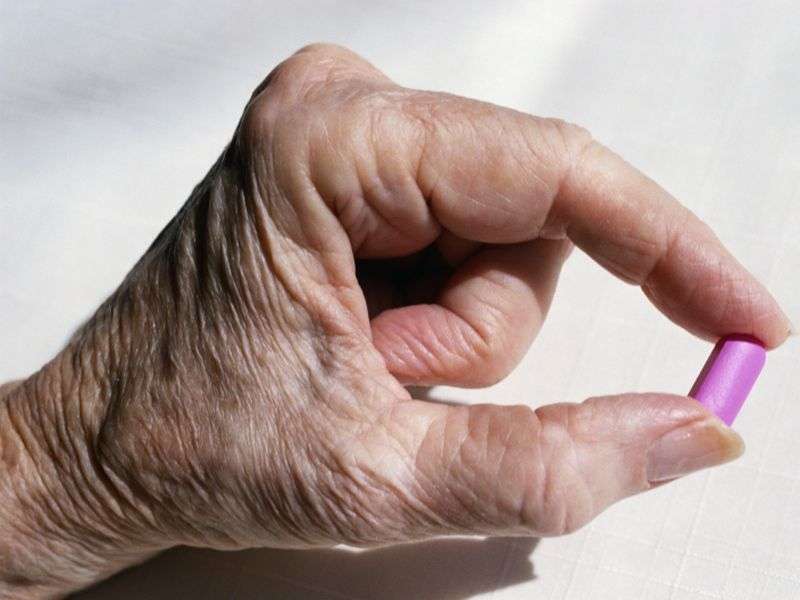Steroid may be safe, effective gout treatment, study finds

(HealthDay)—A steroid pill may be as good as a nonsteroidal anti-inflammatory drug (NSAID) for treating painful gout, new research suggests.
Researchers who compared the steroid prednisolone with the arthritis medication indomethacin found both drugs offered a similar degree of pain reduction. And while indomethacin (Indocin) appeared to cause more minor side effects, neither treatment prompted serious complications, the researchers said.
Smaller investigations have pointed in the same direction, said study lead author Dr. Timothy Rainer, a professor of emergency medicine at Cardiff University in Wales. But because the new findings are the product of a "larger and better-designed" effort, Rainer said steroid pills may gain standing among gout experts who usually stick with NSAIDs as their first-line treatment.
The bottom line is that there are choices, said Dr. Philip Mease, a rheumatologist with the Swedish Medical Center in Seattle.
"That is the key message—that there are options," said Mease, who wasn't involved in the study. "Sometimes ER docs don't think about giving a tapering dose of prednisone, but it can be very effective at helping with gout, which can be damn painful."
Gout is the most common form of inflammatory arthritis among men, the study team said, affecting about 3 percent of adults in the United States.
The culprit is a buildup of uric acid. Crystallized uric acid lodges in the joints, often the big toe, and causes extremely painful flare-ups that disrupt mobility, sleep and overall quality of life.
The new study focused on more than 400 mostly male gout patients in Hong Kong, average age 65. About half had high blood pressure, and nearly three-quarters had a recurring history of gout attacks. Almost 10 percent had been taking the prescription drug allopurinol (Zyloprim), a daily uric acid reducer generally taken for life.
At the time treatment was offered, patients were nearing their third day of gout pain. All were randomly assigned to receive either prednisolone or indomethacin. Neither is a new medication so they are somewhat inexpensive.
Those given indomethacin took 150 milligrams (mg) a day for two days, followed by 75 mg a day for three days. Those given prednisolone took 30 mg a day for five days.
Both treatments were found to provide roughly comparable levels of pain relief, with relief kicking in at a similar pace, whether patients were at rest or active.
Minor adverse side effects, such as abdominal pain, nausea, dizziness and lethargy, were "significantly" more common among the NSAID group, the researchers said, but neither drug caused any serious problems.
The study was funded by the government of Hong Kong, and results appear in the Feb. 23 online edition of the Annals of Internal Medicine.
The investigators cautioned, however, that the study excluded patients with a history of upper gastrointestinal bleeding, and noted earlier research had linked indomethacin to a higher risk for major complications, including gastrointestinal discomfort. They also said the findings concerning indomethacin may not apply to other NSAIDs, such as ibuprofen and aspirin.
Rainer stressed that "each individual patient needs to learn about their own body" with respect to various medications.
"Not everyone reacts to the same drug in the same way," he said. "If one has previous experience of a poor reaction to steroids or NSAIDs, then [that drug] might not be best for that person."
More information: There's more on gout at the Arthritis Foundation.
Copyright © 2016 HealthDay. All rights reserved.
















